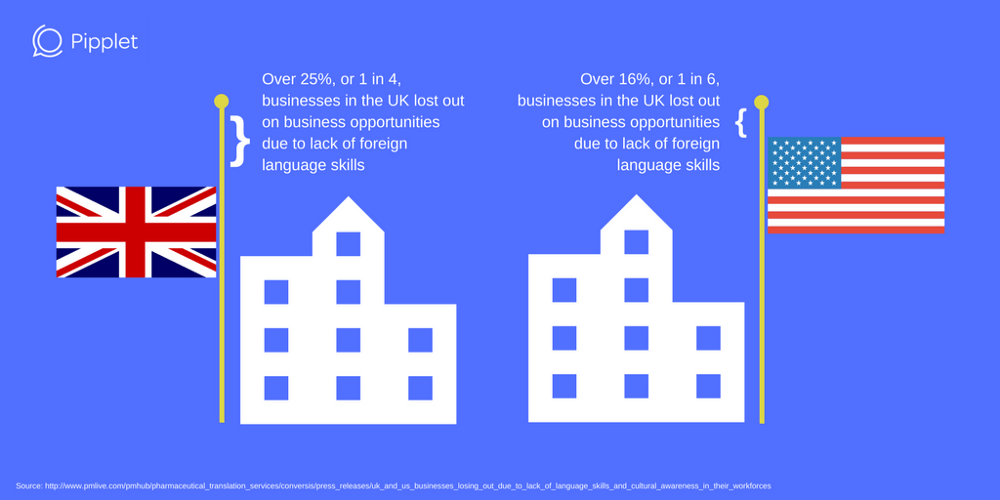How You Might Be Losing Out on Business Opportunities by Speaking English
Willy Brandt, former Chancellor of Germany, famously said, “If I’m selling to you, I speak your language. If I’m buying, dann müssen Sie Deutsch sprechen!”” Brandt seems to highlight the many different aspects of foreign language practices that are still applicable today.
Are you confident that your business, especially your sales team, is capable of selling in another language?
People Like to Speak Their Language
The very first principle of language itself! You can try to communicate and sell in English, the internationally recognized language, but how likely are you of succeeding or building rapport? When trying to sell or forge a business relationship, it is important to understand communication methods and cultural differences.
For example, the French are very proud of their language and have, in recent times, even viewed English as a threat to their cultural identity. Starting off a conversation without the formalities of, “Bonjour, comment ca va?” (hello, how are you?) can lead to a very curt response from the French to an international and an even more difficult interaction. Besides, who wouldn’t appreciate seeing the effort of a business partner or client making the effort to communicate with them in their own language?
People are More Talkative in Their Language
In building business relationships or creating sales opportunities, communication is key. You are inclined to speak more freely and more often when having an exchange with a client or sales representative in English. The more you talk, the more information is exchanged, leading to higher quality interactions; you are able to curtail and present your offer in a fitting way. Wouldn’t you want to be this person?
Language = Culture, Understanding = Opportunity
Not entirely, but mastering language can help one better understand culture. A German-speaking salesperson will also know German culture while a Spanish-speaking salesperson may also know Spanish culture. He or she will know how to detect implicit messages, read social cues, use polite language, etc. This can strengthen one’s relationships, and again, increase the likelihood of success in sales or relationship building.
Do the people in your company have these advantages when working in a global context? In 2015, over 1 in 4 UK businesses and more than 1 in 6 US businesses (where 33% of mid to large size companies had international operations, and/or serve multilingual/multicultural clientele) lost business opportunities due to a lack of foreign language skills.
Despite the growing globalization of the world economy, B2B commerce continues to be a local and personal exchange. As the world grows smaller, start working smarter. Don’t get left behind and make sure that your personnel is able to build valuable relationships with your customers and partners by assessing foreign language skills professionally.
How have you seen foreign language/culture affect your business(es)?
Related stories











